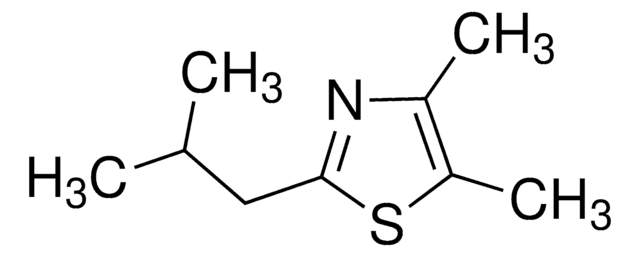W530574
Hydrochloric acid solution
32 wt. % in H2O, FCC
Synonym(s):
Muriatic acid, Hydrogen chloride solution
About This Item
Recommended Products
biological source
synthetic
Quality Level
grade
Kosher
reg. compliance
FCC
vapor pressure
190 mmHg ( 25 °C)
description
20 degrees baumé
form
liquid
concentration
32 wt. % in H2O
bp
100 °C (lit.)
density
1.161 g/mL at 25 °C
anion traces
sulfate (SO42-): ≤0.5%
cation traces
As: ≤3 ppm
Cd: ≤1 ppm
Fe: ≤5 ppm
Hg: ≤0.1 ppm
Pb: ≤1 ppm
application(s)
flavors and fragrances
documentation
see Safety & Documentation for available documents
food allergen
no known allergens
organoleptic
faint
SMILES string
Cl
InChI
1S/ClH/h1H
InChI key
VEXZGXHMUGYJMC-UHFFFAOYSA-N
Looking for similar products? Visit Product Comparison Guide
General description
Application
- In the production of high fructose corn syrup (HFCS) during the process of converting corn starch to fructose.
- In the production of drinking water, beverages and foods. (2)
Disclaimer
signalword
Danger
hcodes
Hazard Classifications
Eye Dam. 1 - Met. Corr. 1 - Skin Corr. 1B - STOT SE 3
target_organs
Respiratory system
Storage Class
8B - Non-combustible corrosive hazardous materials
wgk_germany
WGK 1
flash_point_f
Not applicable
flash_point_c
Not applicable
Certificates of Analysis (COA)
Search for Certificates of Analysis (COA) by entering the products Lot/Batch Number. Lot and Batch Numbers can be found on a product’s label following the words ‘Lot’ or ‘Batch’.
Already Own This Product?
Find documentation for the products that you have recently purchased in the Document Library.
Customers Also Viewed
Our team of scientists has experience in all areas of research including Life Science, Material Science, Chemical Synthesis, Chromatography, Analytical and many others.
Contact Technical Service


